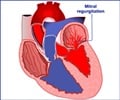Tranexamic acid safely reduces the risk of excessive bleeding, blood transfusions and emergency reoperation after heart surgery without increased risk of death.

TOP INSIGHT
Withholding two common blood pressure lowering medications 24 hours before surgery is associated with a lower a risk of death and postoperative complications to the heart or brain.
A new worldwide study of more than 4,600 patients who had coronary artery surgery found tranexamic acid safely reduced the risk of excessive bleeding, blood transfusions, and emergency reoperation after surgery without increased risk of death or thrombotic complications such as stroke. In the study, published online in the New England Journal of Medicine, half of the patients studied received tranexamic acid, while the other half received a placebo. Researchers found 16.7 percent of patients who received tranexamic acid experienced a primary outcome event (a composite of death and thrombotic complications), compared to 18.1 percent in the placebo group.
The number of units of blood products transfused in the hospital was 4,331 in patients who received tranexamic acid, compared to 7,994 in the placebo group. And emergency reoperations occurred in 1.4 percent of patients in the tranexamic group, compared to 2.8 percent in the placebo group. Although the study was conducted in people having open heart surgery, there is great relevance (and reassurance) for those having many other types of surgery where bleeding and need for blood transfusion may occur - hip or knee replacement surgery, spine surgery, following burns or trauma, etc., noted study author Paul S. Myles, M.P.H., M.D., professor and chair, Department of Anesthesia and Perioperative Medicine, Alfred Hospital, Melbourne, Australia.
Can a Steroid Treat Postop Delirium, Improve Recovery After Heart Surgery
Inflammation after cardiac surgery may contribute to postoperative delirium and cognitive dysfunction. However, using a high dose steroid (methylprednisolone) to treat inflammation after cardiac surgery did not reduce the incidence of postop delirium or improve the quality of recovery, reports a new study published in the Online First edition of Anesthesiology. In the study, nearly 500 patients having cardiopulmonary bypass surgery were randomly assigned methylprednisolone or a placebo, administered during surgery. Patients completed the Postoperative Quality of Recovery Scale before surgery and 1, 2 and 3 days after, as well as, 1 and 6 months after surgery. Patients also completed the Confusion Assessment Method Scale for delirium 1, 2 and 3 days after surgery.
Study Suggests Patients' Withhold Common Blood Pressure Meds Before Surgery
Patients who withheld their medication were 18 percent less likely to die or suffer a stroke or injury to their heart within 30 days after surgery. Study principal investigator PJ Devereaux, M.D., Ph.D., professor, Department of Clinical Epidemiology and Biostatistics, McMaster University, Ontario, Canada and lead author Pavel Roshanov, M.D., M.Sc., London Kidney Clinical Research Unit, London Health Sciences Centre, Ontario, Canada, noted "A large randomized trial is needed to confirm this finding. However, until such study is performed, clinicians should consider recommending that patients withhold these blood pressure lowering medications 24 hours before surgery."
Effectiveness of an Electronic Alert to Reduce 90-Day Postop Mortality
Ninety-day postoperative mortality was not significantly lowered in patients cared for by anesthesia care providers who received automated alerts for "double low" conditions, a combination of low blood pressure and low bispectral index, which monitors depth of anesthesia and accurate anesthetic administration, finds a new study published in the Online First edition of Anesthesiology. According to the study, prolonged cumulative "double-low" conditions were strongly associated with mortality. In the study, more than 19,000 patients having non-cardiac surgery randomly received intraoperative alerts to notify anesthesia providers of double-low events or no alerts. Anesthesia care providers were not blinded and not required to alter care based upon the alerts. Researchers found the duration of double low events were slightly reduced when alarms occurred during the condition, but 90-day mortality was not affected (90-day mortality was 1.4 percent of patients in the alarm group, 1.3 percent of patients in the no alarm group).
Patients who experienced more than 60 minutes of cumulative double-low events were twice as likely to die. Anesthesia care providers did respond to the electronic alerts, but there was no measureable difference between the groups. Study author Patrick J. McCormick, M.D., anesthesiology director of quality informatics, Department of Anesthesiology & Critical Care Medicine, Memorial Sloan Kettering Cancer Center, New York, said "Physician anesthesiologists are experts in adjusting blood pressure and the level of consciousness during surgery. Our study tested the hypothesis that alerting anesthesia care providers to the existence of a double low state would reduce 90-day postoperative mortality. It is unclear whether preventing or treating double low events will lead to reduced postoperative mortality."
Source-Eurekalert
 MEDINDIA
MEDINDIA




 Email
Email









